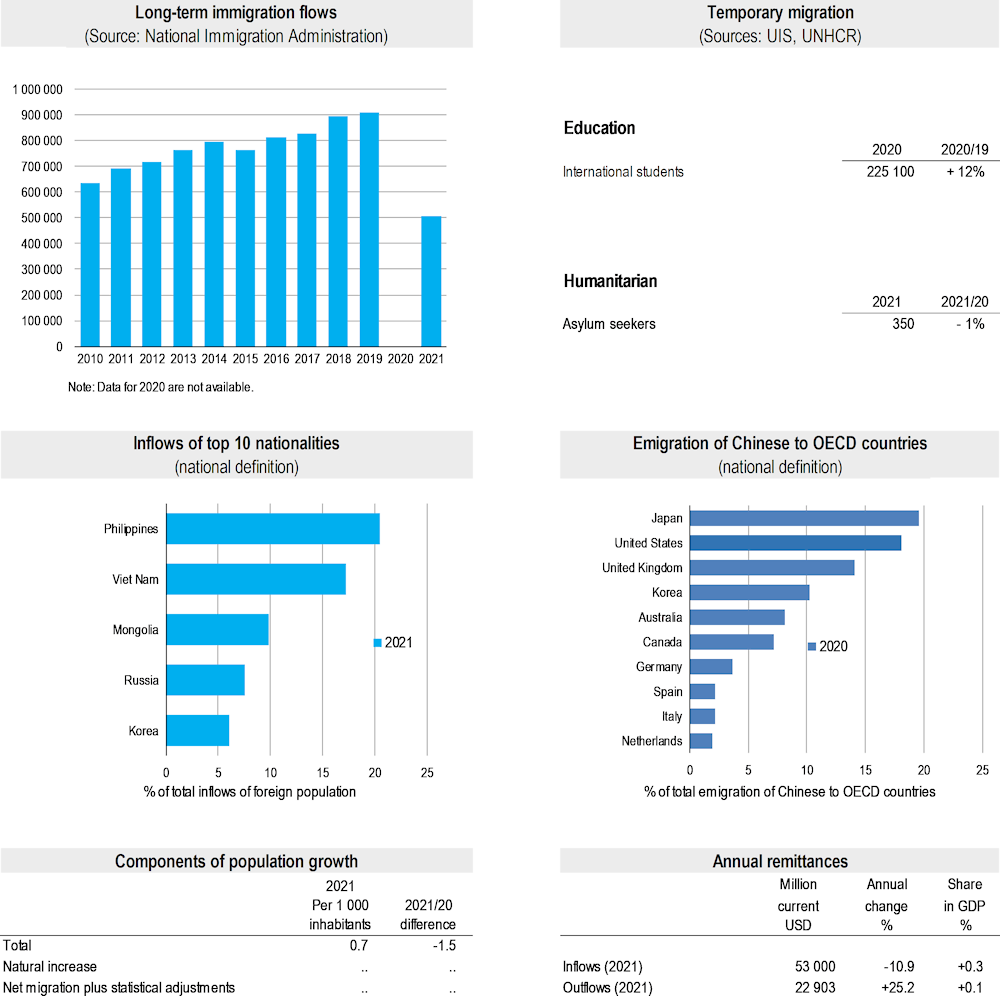At the end of 2021 there were a total of 531 000 foreign residents in the People’s Republic of China. The top three countries of origin for foreign nationals in China were the Republic of Korea (13.6%), the United States (12.5%) and Viet Nam (12.2%).
In 2021, there was a total of 2.2 million entries from foreign nationals. The top five origin countries of foreign nationals were the Philippines (450 000), Viet Nam (379 000), Mongolia (217 000), Russia (166 000), and Korea (134 000). The Chinese National Public Security authorities issued 38 000 visas, 170 000 short-term stay permits, and 508 000 long-term residence permits.
In April 2021, The National Immigration Administration of China (NIA) officially launched the China Immigration Service Hotline and English version website to provide useful information and government services to Chinese citizens and foreign nationals. The hotline, which provides 24-hour service in both Chinese and English, provides a range of services to Chinese and foreign nationals including guidance on current immigration policies and facilitates feedback on services. NIA has also developed an English language website to provide information on China’s immigration management system, and deliver a range of online services to foreign nationals and businesses both in and outside of China.
China has expanded the scope of online booking services at the Exit and Entry Administration, including allowing foreign nationals to book appointments and fill in application materials online. There have also been six specific measures for elderly applicants to submit documents required for exit and entry procedures. To facilitate better service for the elderly, the NIA established a fast track “green channel” for document handling, promoted the use of self-service and online “smart services”, simplified the photo-collecting process, increased the number of payment options, improved the user experience for online procedures, and established an online platform for express service.
In September 2021, China announced improvements in the management of long-term foreign residents in China by strengthening information sharing between relevant government ministries, optimising administrative processes, and promoting a “single service window” for residence and work permits for skilled migrants. Additionally, foreign nationals in China holding a work-type residence permit are no longer required to change their residence status to undertake professional training and development courses.
For further information: https://en.nia.gov.cn/

